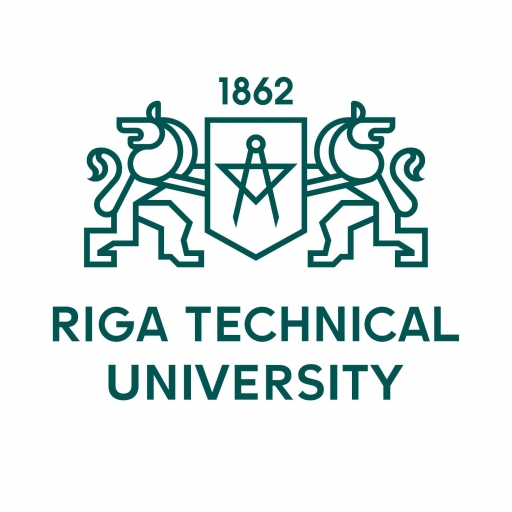Photos of university / #rtu.lv
Transportation Engineering (Road and Bridge Design) at Riga Technical University offers a comprehensive education aimed at preparing specialists capable of designing, analyzing, and managing modern transportation infrastructure projects. The program is tailored to meet the demands of the evolving transportation sector by combining theoretical knowledge with practical skills in road construction, bridge engineering, transportation planning, and safety management. Students will gain a thorough understanding of the fundamental principles of transportation systems, including traffic flow, transportation economics, and environmental considerations, ensuring they are well-equipped to contribute effectively to infrastructure development projects. The curriculum emphasizes the design and analysis of roads and bridges, incorporating advanced methods and modern software tools used in the industry. Throughout their studies, students will engage in laboratory work, projects, and internships that foster hands-on experience and collaboration with industry professionals. The program also explores sustainable transportation solutions and the integration of innovative technologies to enhance transportation safety and efficiency. Graduates will be qualified to work in various sectors such as civil engineering companies, transportation agencies, consultancy firms, and governmental departments involved in transport infrastructure planning and construction. The program is delivered by experienced faculty members who are experts in transportation engineering, ensuring students receive mentorship rooted in current industry practices and research innovations. Upon completion, graduates will possess the expertise to address complex challenges in road and bridge design, contributing to the development of safe, reliable, and sustainable transportation networks both within Latvia and internationally.
Transportation Engineering with a focus on Road and Bridge Design at Riga Technical University is a comprehensive program designed to prepare highly qualified specialists in the field of transport infrastructure development. This program provides students with in-depth knowledge of the principles and practices involved in the planning, design, construction, and maintenance of roads and bridges, which are critical components of modern transportation networks. Throughout the course of study, students explore various aspects of transportation engineering, including traffic flow analysis, transportation systems planning, structural design of bridges, pavement engineering, and construction management. The curriculum emphasizes both theoretical foundations and practical skills, enabling graduates to address the complex challenges faced in the development of sustainable, safe, and efficient transportation infrastructure. Students gain proficiency in using advanced engineering software and tools necessary for designing roadways and bridges, performing stress and load analysis, and ensuring compliance with safety standards and environmental regulations. The program also highlights innovative solutions and the integration of new technologies such as smart transportation systems and environmentally friendly materials in infrastructure projects. Close collaboration with industry partners and practical training through internships provide students with valuable hands-on experience, preparing them for careers in consulting firms, government agencies, and construction companies. Graduates of the program are equipped to contribute effectively to the development of transportation networks that support economic growth and mobility within Latvia and internationally. By combining technical expertise with an understanding of the social and environmental implications of transportation projects, this program aims to produce well-rounded engineers capable of leading future infrastructure initiatives.
Program requirements for the Bachelor's degree in Transportation Engineering (Road and Bridge Design) at Riga Technical University include a combination of academic prerequisites, language proficiency, and additional qualifications. Applicants should have completed secondary education with a focus on mathematics, physics, and technical sciences, demonstrating strong foundational knowledge necessary for advanced engineering studies. A high school diploma or equivalent is essential, with successful completion of entrance examinations in mathematics and physics to assess technical aptitude.
Proficiency in English is mandatory, typically evidenced by standardized tests such as IELTS or TOEFL, ensuring that students can engage fully with instructional materials, participate in discussions, and complete assessments in the language of instruction. The program is designed for students who possess analytical thinking skills, problem-solving abilities, and an understanding of basic engineering principles.
Candidates may also need to submit a motivation letter and recommendation letters from teachers or industry professionals to demonstrate their interest and suitability for the transportation engineering field. Some applicants with relevant work experience or technical internships may be considered favorably, especially if their prior experience aligns with infrastructure planning, design, or transportation logistics.
Additionally, for international students, proof of legal residence in Latvia or the European Union, along with necessary visa arrangements, is required. The university may also conduct interviews or assessments to appraise the applicant’s motivation and suitability for the program.
Once admitted, students are expected to meet ongoing academic requirements, including participation in practical training sessions, laboratory work, and project-based coursework. Certain modules may require prior completion of specific introductory courses, emphasizing the importance of a solid background in STEM (science, technology, engineering, mathematics) subjects.
The program aims to prepare students for careers in planning, designing, and maintaining roads and bridges, and as such, applicants should demonstrate a commitment to construction safety standards, environmental considerations, and sustainable development practices in transportation infrastructure. Continuous engagement with current industry standards and technologies is encouraged, and students are often required to participate in seminars, technical visits, and collaborative projects.
In summary, the program enforces strict academic, language, and practical prerequisites to ensure that admitted students are well-qualified to undertake the rigorous curriculum and to succeed professionally in transportation engineering sectors specializing in road and bridge design.
The financing of the Transportation Engineering (Road and Bridge Design) program at Riga Technical University is primarily supported through a combination of state funding, student tuition fees, and potential international grants. As a public university in Latvia, Riga Technical University receives significant financial support from the Latvian government, which covers a portion of the operational costs and infrastructure development for engineering programs. This government funding aims to promote higher education and ensure the availability of quality technical education to domestic students, often subsidizing tuition fees for Latvian nationals.
International students enrolled in the program are usually required to pay tuition fees, which are set annually and depend on the specific regulations for foreign students. These fees contribute to the financial sustainability of the program and help maintain high standards of education and research. Additionally, students may have access to various scholarships and financial aid options provided by the university, the Latvian government, or international organizations. Scholarships may be awarded based on academic achievement, financial need, or specific criteria related to the student’s country of origin or field of study.
Research grants and project funding also play a vital role in the financial structure of the program. The university actively participates in national and European Union research projects related to transportation engineering, infrastructure development, and sustainable mobility. These projects often come with dedicated funding that supports specific research activities, infrastructure improvements, and innovation in curriculum development.
Private sector partnerships and industry collaborations contribute further financial resources, often providing sponsorships, internships, and practical training opportunities for students, which are essential for applied engineering education. Alumni contributions and donations from infrastructure companies and engineering firms also support the continuous development and enhancement of the program.
In summary, the financing model for the Transportation Engineering (Road and Bridge Design) program at Riga Technical University involves a diversified approach combining public funding, tuition fees, research grants, scholarships, industry partnerships, and alumni support. This multifaceted financial strategy ensures the program remains accessible, high-quality, and capable of adapting to technological advancements and industry needs, ultimately preparing students for successful careers in transportation infrastructure design and development.
Transportation Engineering (Road and Bridge Design) at Riga Technical University offers a comprehensive curriculum focused on the planning, design, analysis, and management of transportation infrastructure. The program aims to prepare students with a solid foundation in civil engineering principles, emphasizing road construction, bridge design, and transportation systems. Students are trained in the use of modern engineering software and tools necessary for designing safe, sustainable, and efficient roads and bridges.
The curriculum covers fundamental topics such as materials science, structural analysis, geotechnics, transportation planning, and environmental impact assessment. Special attention is given to sustainable development practices and innovative technologies in transportation infrastructure. Practical experience is integrated through laboratory work, seminars, workshops, and internships with industry partners, enabling students to apply theoretical knowledge to real-world projects.
Graduates of this program are equipped to work on infrastructure projects within government agencies, private engineering firms, and construction companies. They can pursue careers in transportation planning, project management, structural design, and quality assurance in the civil engineering sector. The program also prepares students for postgraduate studies and research activities related to transportation engineering.
The faculty at Riga Technical University is composed of experienced professionals and researchers dedicated to providing a high-quality educational experience. Students benefit from modern teaching facilities, access to research projects, and collaboration with industry stakeholders. The program aligns with European standards for engineering education, ensuring graduates are competitive in the international job market. Overall, Transportation Engineering (Road and Bridge Design) at Riga Technical University aims to develop skilled engineers capable of contributing to Latvia’s and Europe's transportation infrastructure development, emphasizing safety, sustainability, and innovation.








